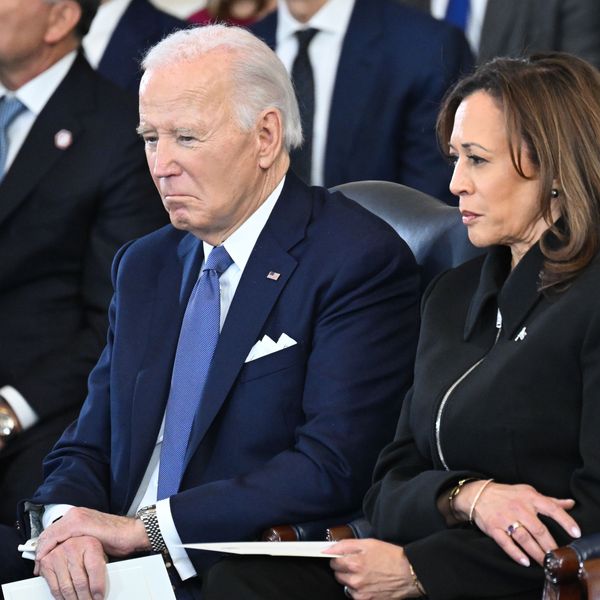In her long, sad self-diminution to being merely a white candidate for subsegments of white people, Hillary Clinton claimed to USA Today this week, "I have a much broader base to build a winning coalition on." Clinton exploited an Associated Press poll to say how "Senator Obama's support among working, hard-working Americans, white Americans, is weakening again and how whites in both states who had not completed college were supporting me . . . There's a pattern emerging here.
"This was on top of Democratic strategist and Clinton supporter Paul Begala saying this week on CNN, "We cannot win with eggheads and African-Americans. OK. That's the Dukakis coalition, which carried 10 states and gave us four years of the first George Bush. President Clinton, you know, reached across and got a whole lot of Republicans and independents to come."
This reaches across the aisle all right, straight to right-wing talk show host Rush Limbaugh. Limbaugh, who has been urging people to vote for Clinton to prolong the Democratic primaries, said this week, "Barack Obama has shown he cannot get the votes that Democrats need to win: blue-collar working people. He can get effete snobs. He can get wealthy academics and he can get the young, he can get the black vote, that's about it."
Obama just got done being tarred and feathered as an elitist by Clinton and the talk shows for belittling "bitter" people in jobless small towns who "cling to guns or religion." Yes, that was dumb.
Yet here is Clinton dancing all over stereotypes. There is no way you can say in the same sentence, "hard-working Americans, white Americans," without diminishing black Americans as lazy.
Can you imagine the Jeremiah Wright-level furor if Obama turned Begala's words upside down and said: "We cannot win with the working class and white people. OK. That's the Reagan coalition?"
The truth is that Clinton is in denial about one of the key reasons for her slide from inevitability. She choked on the black vote. Conveniently forgotten in her reinvention in Pennsylvania as Rocky Balboa (who conveniently was a white working-class boxer trying to beat down a black champion), is that this white woman led Obama in an October 2007 CNN poll, 68 percent to 25 percent among black women and was nearly dead even with Obama among black men.
It was not just that Obama stunned the conventional political world. It was also, as this column has pointed out, because of steady dollops of racial and religious innuendo from surrogates, most notably husband Bill Clinton and former vice presidential candidate Geraldine Ferraro. All the love built up between the Clintons and black folks became love and war when a black man stood between them and their castle.
The problem for Clinton is that this is another case in which her math does not add up. Yes, every voter the Democrats can get their hands on is critical. But all this talk about Obama not connecting with salt of the earth white folks cynically forgets that white leaders in the Democratic Party have not solved this problem since Jimmy Carter's 48 percent of the white vote in 1976, yet want to make Obama the poster child for it despite his multi-racial crowds and record turnouts of voters. In the late throes of her insurgency, to borrow from Dick Cheney, Clinton is playing "divide and doubt" about Obama getting "only" 37 percent of the white vote in North Carolina and Pennsylvania and 40 percent in Indiana.
But in a year in which Republican enthusiasm is in doubt with a bad war and a bummer economy, it must be remembered that Bill Clinton won the presidency in 1992 in three-way races with a grand total of 39 percent of the white vote and 83 percent of the black vote and 61 percent of the Hispanic vote and besting the first President Bush and Ross Perot among all age groups.
Ironically, Obama got to where he is by not being the "black" candidate. It is Clinton who is now the race candidate, diminishing black voters and eggheads, her final hopes resting on the thinnest of eggshells.
Derrick Z. Jackson can be reached at jackson@globe.com.
(c) 2008 Boston Globe


